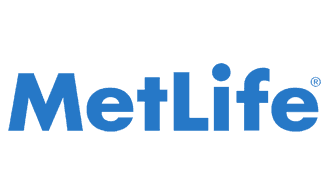
Business liability insurance is essential to any company’s risk management strategy, especially in a bustling city like New York. With its vibrant and competitive business environment, New York presents unique challenges and risks for entrepreneurs and business owners. The list of potential liabilities can be daunting, from potential lawsuits to property damage. This blog post explores the benefits of having business liability insurance in New York and how it can provide financial protection and peace of mind for businesses of all sizes.
1. Legal Protection
Lawsuit defines: If your business is faced with a lawsuit, having liability insurance can help cover the costs associated with legal defines. This can include attorney fees, court costs, and settlements or judgments.
Legal representation: Liability insurance often comes with access to a network of attorneys specializing in business-related legal matters. These lawyers can provide legal representation and guidance throughout the legal process.
Compliance with legal requirements: In New York, there are specific legal requirements and regulations that businesses need to adhere to. Business liability insurance can help ensure that your business complies with these requirements, preventing legal repercussions.
Contractual obligations: Many business contracts require proof of liability insurance coverage. Business liability insurance allows you to fulfil these contractual obligations and avoid any potential legal disputes.
Protection against employee claims: In New York, businesses must have workers’ compensation insurance. However, business liability insurance can provide additional coverage for employee claims related to workplace injuries or illnesses, protecting your business from potential lawsuits.
2. Personal Asset Protection
Separation of business and personal assets: Business liability insurance helps create a legal separation between your assets and your business assets. If your business is liable for damages or losses, your assets, such as your home or savings, may be shielded from seizure to satisfy the claim.
Coverage for legal expenses: In a lawsuit or legal claim, business liability insurance can cover the costs associated with legal defines, including attorney fees, court costs, and settlements or judgments. This ensures you don’t have to dip into your assets to cover these expenses.
Protection against personal injury claims: If someone is injured on your business premises or due to your business operations, they may file a personal injury claim against your business. Business liability insurance can cover medical expenses, rehabilitation costs, and potential legal settlements or judgments, protecting your assets from being used to compensate the injured party.
Coverage for property damage claims: If your business causes damage to someone else’s property, such as a client’s office or a neighbouring building, you may be held liable for the cost of repairs or replacement. Business liability insurance can cover property damage claims, ensuring your assets are not at risk.
Peace of mind: Knowing that your assets are protected can give you peace of mind as a business owner. It allows you to focus on running and growing your business without constantly worrying about the potential financial impact of a lawsuit or legal claim.
3. Coverage for Bodily Injury and Property Damage
Bodily injury coverage: If a customer, client, or any other individual sustains bodily harm on your business premises or as a result of your business activities, they may file a bodily injury claim. Business liability insurance can cover medical expenses, rehabilitation costs, and potential legal settlements or judgments related to these claims. This coverage ensures that your assets are not at risk of being used to compensate the injured party.
Property damage coverage: Accidents happen, and your business may inadvertently cause damage to someone else’s property. Whether it’s a client’s office, a neighbouring building, or any other property, you may be held liable for the cost of repairs or replacement. Business liability insurance can cover property damage claims, ensuring that your assets are not burdened with the financial responsibility of paying for these damages.
Legal expenses coverage: In the event of a bodily injury or property damage claim, business liability insurance can cover the costs associated with legal defines. This includes attorney fees, court costs, and any settlements or judgments. This coverage means you don’t have to dip into your assets to cover legal expenses, which can be significant in a lawsuit or legal claim.
4. Product Liability Coverage
Defending against claims: A consumer who suffers bodily injury or property damage due to a defective product may file a product liability claim against your business. Product liability coverage can help cover the costs of defending against these claims, including legal fees, court costs, and settlements or judgments. Without this coverage, your business may be responsible for paying these expenses out of pocket, which could severely impact your finances.
Medical expenses and compensation: If a defective product injures a consumer, your business may be liable for their medical expenses, rehabilitation costs, and even compensation for pain and suffering. Product liability coverage can provide financial protection by covering these expenses, ensuring that your business assets are not at risk of being depleted to compensate the injured party.
Cost of recalls and repairs: If a defect is identified in your products, you may be required to initiate a product recall or perform repairs to prevent further consumer harm. Product liability coverage can help cover the costs associated with these recall efforts, including notifying customers, retrieving and replacing products, and any necessary repairs. This coverage can help mitigate the financial burden of recalls, enabling your business to minimize disruptions and maintain its reputation.
Design and manufacturing flaws: Even if your business is not directly responsible for a product defect, such as a design or manufacturing flaw, you may still be liable. Product liability coverage can provide financial protection in such cases, ensuring that your business is not financially devastated by claims arising from defects beyond your control.
5. Completed Operations Coverage
Protecting against post-project liabilities: Once a project or service has been completed, your business may still be exposed to liabilities if something goes wrong. Completed operations coverage can help protect your business from claims related to faulty quality, errors, or omissions that occur after the completion of the project. This coverage can provide financial protection by covering the costs of legal defines, settlements, or judgments arising from such claims.
Coverage for property damage or bodily injury: If a completed project or service causes damage to or injury to a third party, your business may be held liable. Completed operations coverage can help cover the costs of these claims, including repairs or replacement of damaged property, medical expenses, and compensation for pain and suffering. Without this coverage, your business may be responsible for paying these expenses out of pocket, which could significantly impact your financial stability.
Protection against contractual liabilities: In many industries, businesses must often enter into contracts with clients or customers. These contracts may include provisions that hold your business responsible for any damages or injuries resulting from the completed project or service. Completed operations coverage can provide financial protection by covering the costs associated with a breach of contract claims or other contractual liabilities.
Long-tail liability coverage: Some projects or services may have long-term effects that may take time to be apparent. For example, a construction project may have underlying structural issues that only become evident years later. Completed operations coverage can provide long-tail liability coverage, protecting your business from claims that arise long after the project has been completed.














